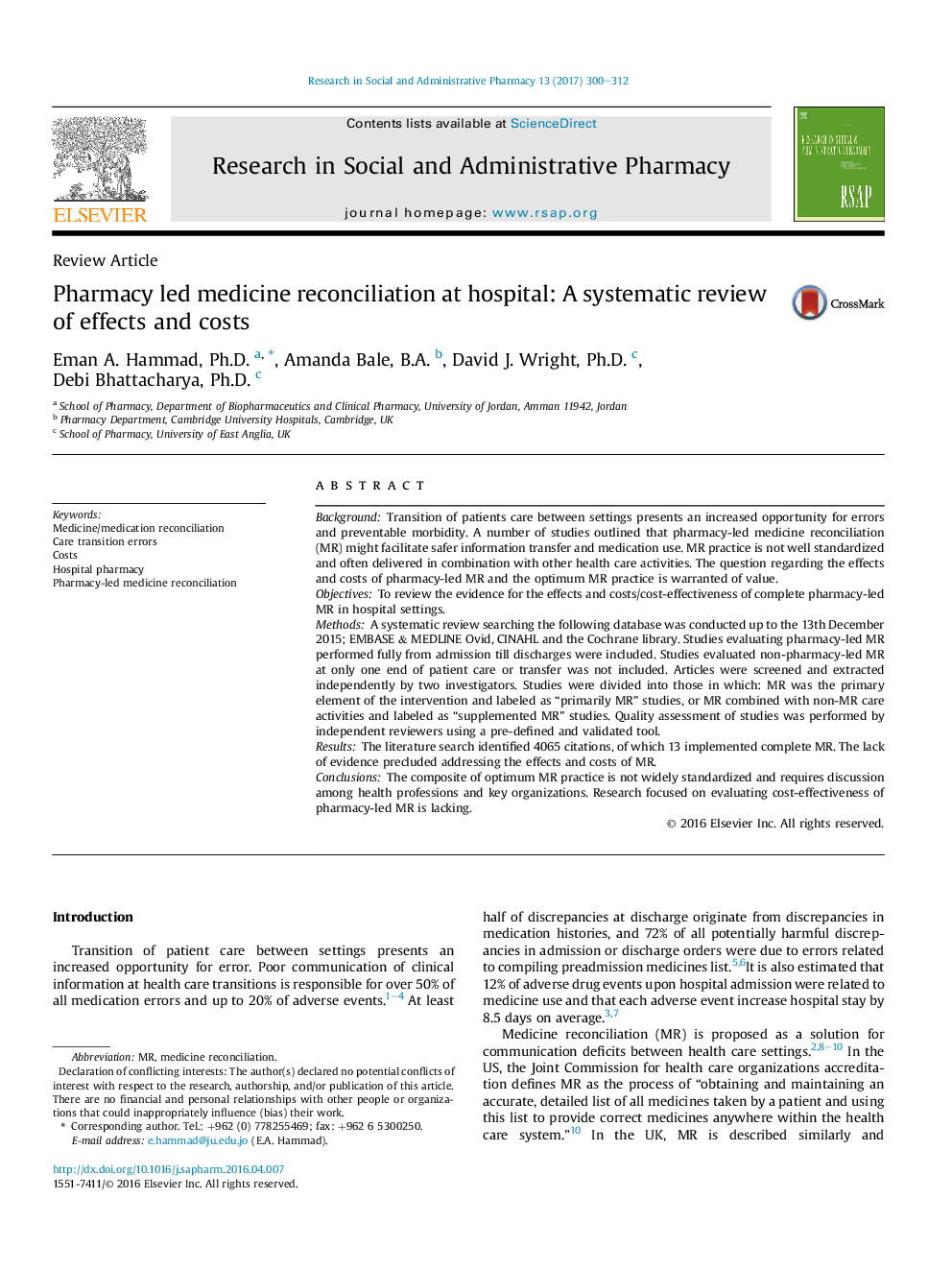| Article ID | Journal | Published Year | Pages | File Type |
|---|---|---|---|---|
| 5551191 | Research in Social and Administrative Pharmacy | 2017 | 13 Pages |
BackgroundTransition of patients care between settings presents an increased opportunity for errors and preventable morbidity. A number of studies outlined that pharmacy-led medicine reconciliation (MR) might facilitate safer information transfer and medication use. MR practice is not well standardized and often delivered in combination with other health care activities. The question regarding the effects and costs of pharmacy-led MR and the optimum MR practice is warranted of value.ObjectivesTo review the evidence for the effects and costs/cost-effectiveness of complete pharmacy-led MR in hospital settings.MethodsA systematic review searching the following database was conducted up to the 13th December 2015; EMBASE & MEDLINE Ovid, CINAHL and the Cochrane library. Studies evaluating pharmacy-led MR performed fully from admission till discharges were included. Studies evaluated non-pharmacy-led MR at only one end of patient care or transfer was not included. Articles were screened and extracted independently by two investigators. Studies were divided into those in which: MR was the primary element of the intervention and labeled as “primarily MR” studies, or MR combined with non-MR care activities and labeled as “supplemented MR” studies. Quality assessment of studies was performed by independent reviewers using a pre-defined and validated tool.ResultsThe literature search identified 4065 citations, of which 13 implemented complete MR. The lack of evidence precluded addressing the effects and costs of MR.ConclusionsThe composite of optimum MR practice is not widely standardized and requires discussion among health professions and key organizations. Research focused on evaluating cost-effectiveness of pharmacy-led MR is lacking.
